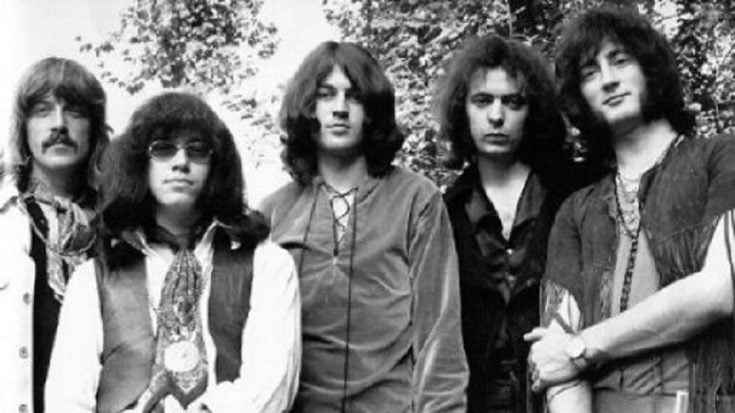The Origin Of Deep Purple’s Name

@deep_purple_fanpage / Instagram
The music of Deep Purple continues to be highly regarded as influential, with fans from young and old generation speak for itself. Deep Purple, along with Led Zeppelin and Black Sabbath, is frequently cited as one of the predominant bands that helped pioneer heavy metal in its earliest years, even if many may not consider them heavy metal.
Moreover, there was a time when the band went by a different name entirely, before they went through their famous title. Below, let’s take a good look of the origins of the name Deep Purple.
When it was time to form the first group for Deep Purple (then called the Roundabout), the man leading the way wasn’t named Ian Gillan or Ritchie Blackmore. Drummer Chris Curtis, formerly of the Searchers, formed Roundabout in the latter part of 1967, and the band’s first members included keyboardist Jon Lord and bassist Nick Simper. The group’s concept was to have no defined line-up, which was an interesting premise.
When Curtis invited Blackmore to join Roundabout, Lord and the talented young guitarist immediately hit it off. As Curtis, a former Searchers member, tried to invent new ways to distinguish the group from its peers, the band’s members found themselves further and further apart. Curtis eventually walked away from the Roundabout project, claiming that he was no longer interested in working on it. Nevertheless, the remaining members as well as Roundabout’s management team still felt that the band has a potential to rise.
They were able to persuade Jon Lord, Nick Simper, and Ritchie Blackmore to carry on. The band later added Rod Evans on vocals and Ian Paice on drums, but it was still known as Roundabout at the time. In the book “Smoke on the Water: Deep Purple Story,” the issue shows that none of the band’s members liked their previous name, so they decided to change it during a 1968 tour of Scandinavia.
Orpheus, Concrete God, and Fire were among the band members’ suggestions for a new name. Even so, there was one band name that would seem to strike a chord with them as they carried on other band names: “Deep Purple,” which happened to be Ritchie Blackmore’s grandmother’s favorite song in the 1930s. Furthermore, the name is famous as it was taken from an acid strain of the same name.
Deep Purple was the name that brought them success, which was evident on their hit “Hush” that topped at no. 4 at the Billboard Hot 100. Since then, the name remains an iconic one that we can associate some pretty legendary songs with, like “Highway Star,” “Speed King,” and “Smoke on the Water.”












